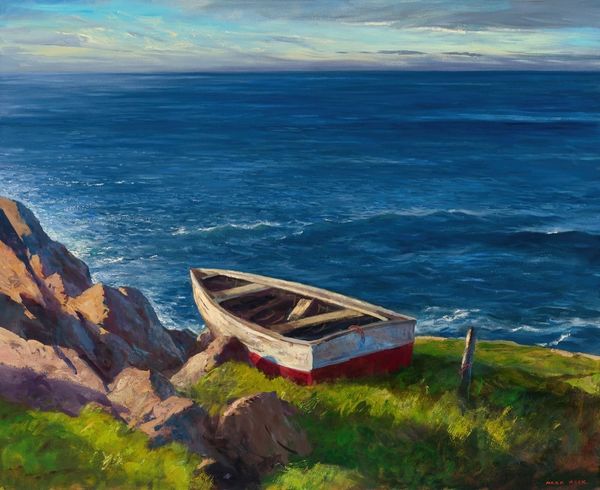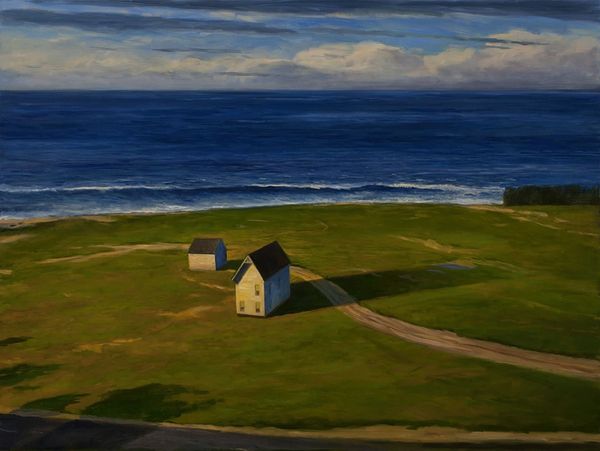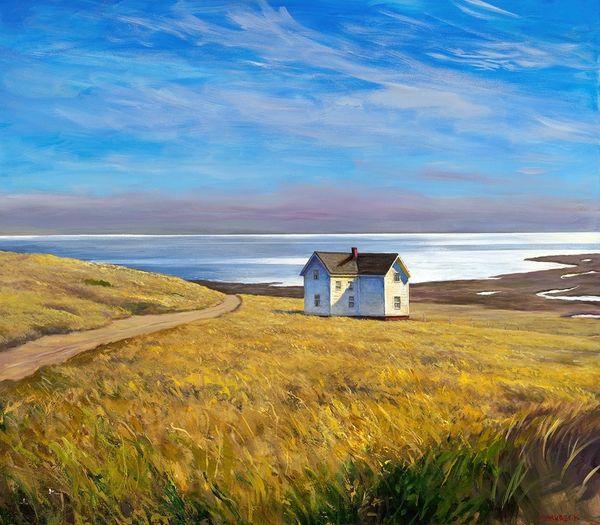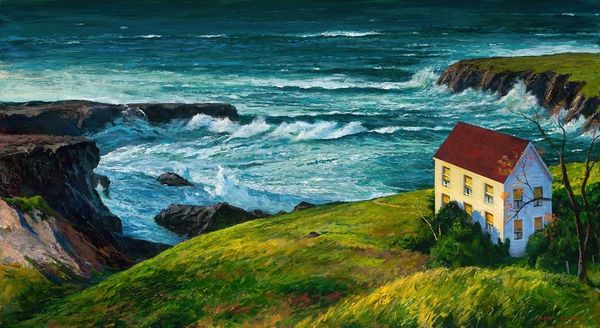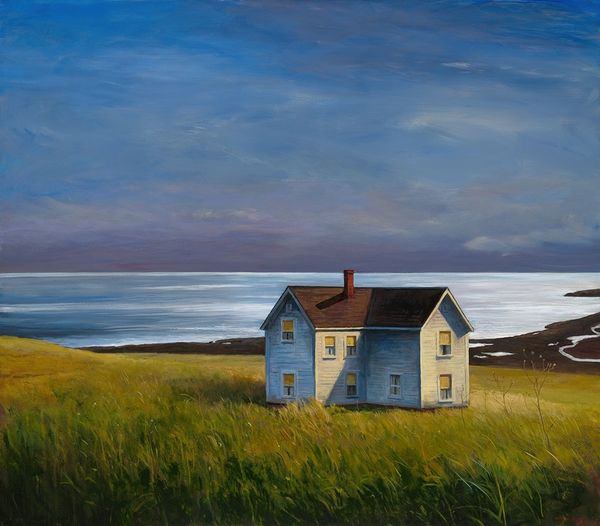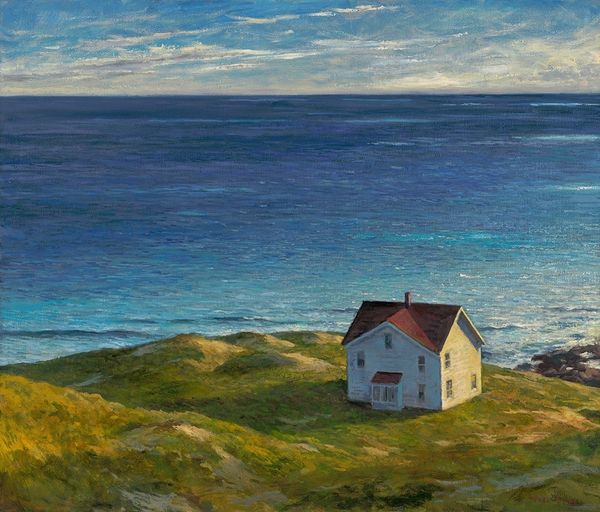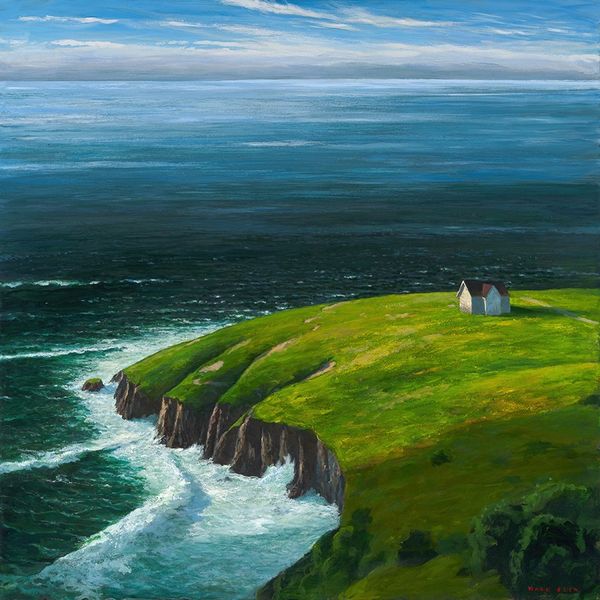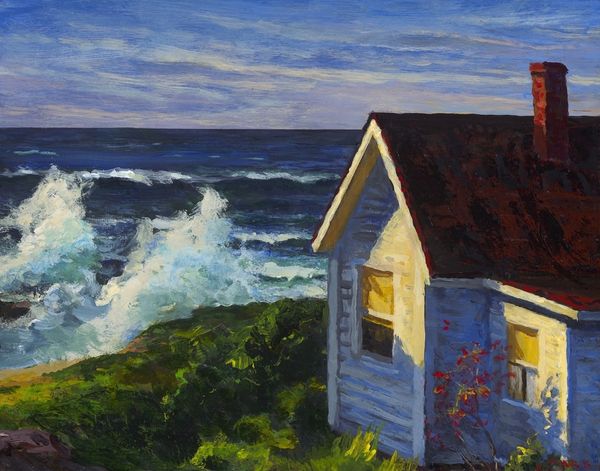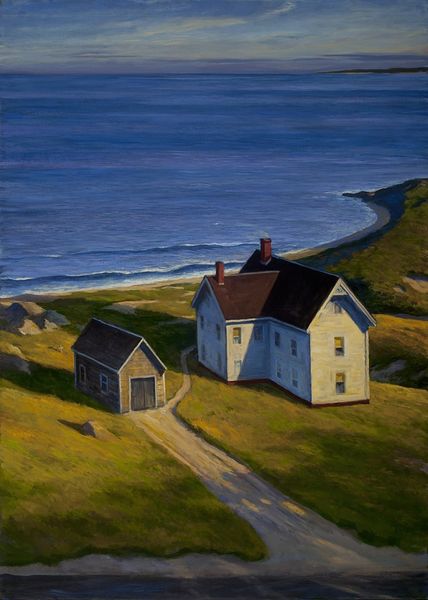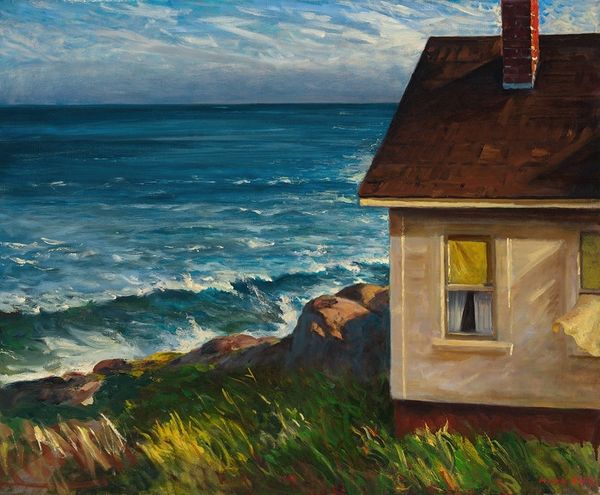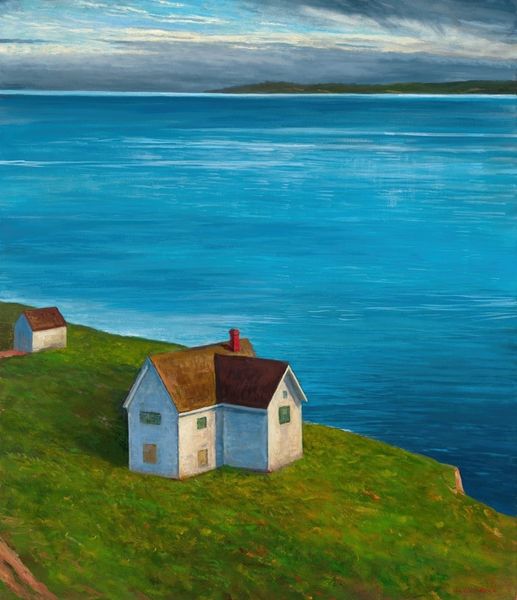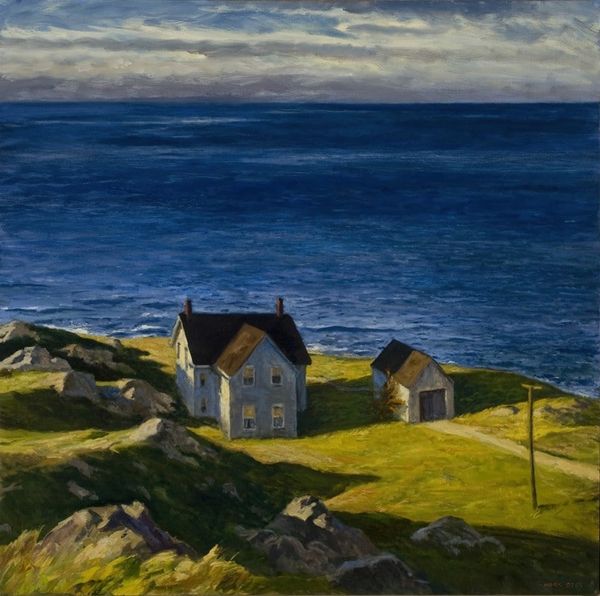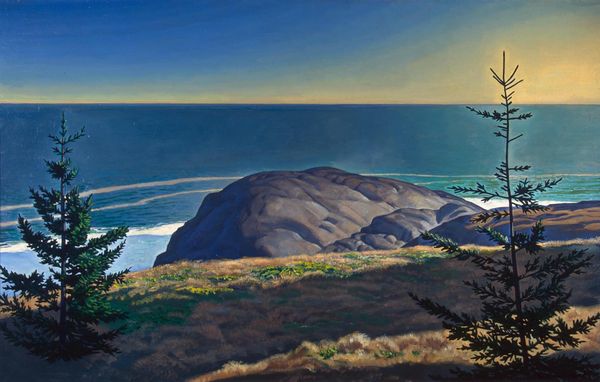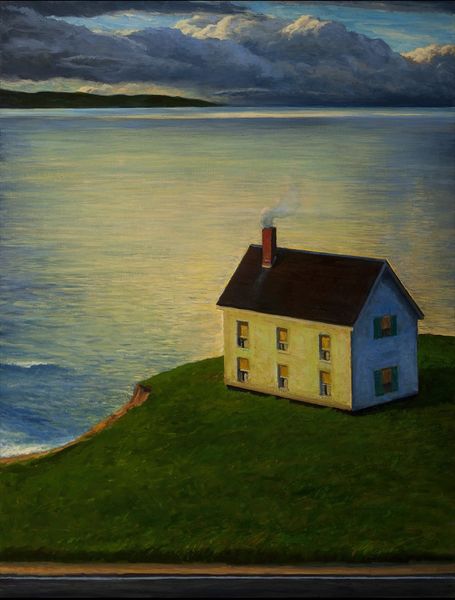
painting, plein-air, oil-paint
#
painting
#
plein-air
#
oil-paint
#
landscape
#
surrealism
#
cityscape
#
modernism
#
realism
Copyright: Modern Artists: Artvee
Curator: Standing before us is Mark Beck’s “Rising Tide,” a captivating oil painting executed in a plein-air style. It features a classic seascape and an arresting display of coastal architecture. Editor: My first impression? There's something both inviting and isolating about this composition. The crisp details of the buildings pull you in, while the immensity of the water around them evokes a sense of being cut off from the world. Curator: I see the symbolism playing out across the scene. Notice how the light and shadows carve a path towards that distant structure, a visual motif of yearning. Also, water signifies change, life, and unconsciousness—"Rising Tide" certainly seems to be hinting towards some inner world transformation. Editor: I wonder, what was it like to display paintings like this to the wider public? To many city dwellers, this would have represented the idealized escape into a simpler, more organic existence away from crowded city centers. I feel it is the archetypal lonely house on the coast, facing something big alone. Curator: That contrast is important. These remote dwellings often held deeply spiritual connotations. Thinkers sought nature's sublime power, the transcendental experience available outside societal strictures. The artist offers not just a visual document, but almost a devotional experience. Editor: Exactly! Beck is playing with very specific expectations of painting; landscape in general can offer catharsis and be seen as almost a form of propaganda. We see the role that idealized depictions of simple coastal life play in broader social dialogues about nature and industry. The politics of art! Curator: Precisely. Viewing art like "Rising Tide" gives us the ability to tap into something universal, and remember that continuity over time. I mean, people were striving to understand nature through art hundreds of years ago, and will be for hundreds of years into the future! Editor: For sure, I leave feeling reflective about the impact of historical memory on even modern and seemingly benign seascapes, and just how those long-lost historical associations linger to shape our own perceptions and responses.
Comments
No comments
Be the first to comment and join the conversation on the ultimate creative platform.
